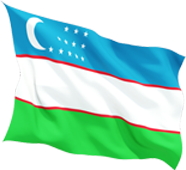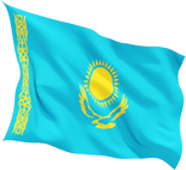The right of everyone to a fair trial is a fundamental right and an important criterion established by the international community. In particular, this right has been enshrined in the Universal Declaration of Human Rights (1948, Article 8), the International Covenant on Civil and Political Rights (1966, Article 14), the Convention on Human Rights and Fundamental Freedoms (1950, Article 6), the The Convention against Torture and Other Cruel, Inhuman or Degrading Treatment or Punishment (1984, Article 2), the American Regional Convention on Human Rights (1969, Article 8), the Convention for the Elimination of All Forms of Discrimination against Women (1979, Article 15), Convention on Access to Information, Public Participation in Decision‐Making and Access to Justice in Environmental Matters (1998, Article 3), Convention on the Rights of Persons with Disabilities (2006, Article 13).
In particular, article 8 of the Universal Declaration of Human Rights states that everyone has the right to effective redress by authoritative national tribunals in cases of violation of the fundamental rights granted to him by the Constitution or by law and in accordance with the International Covenant on Civil and Political Rights “All persons shall be equal before the courts and tribunals, in the determination of any criminal charge against him, or of his rights and obligations in a suit at law, everyone shall be entitled to a fair and public hearing by a competent, independent and impartial tribunal established by law”.
Under the Article 55 of the Constitution, everyone has the right to defend his or her rights and freedoms by all means not prohibited by law, is guaranteed judicial protection of his or her rights and freedoms, the right to appeal to the courts against unlawful decisions, acts and omissions by State bodies and other organizations and their officials, and, in order to restore his or her violated rights and freedoms, is guaranteed the right to have his or her case heard by a competent, independent and impartial court within the time limits established by law. This legal rule is also reflected in our procedural legislation, including the Code of Economic Procedure (Article 3), the Code of Civil Procedure (Article 3), the Code of Criminal Procedure (Article 16).
According to the Constitution and laws, not only persons but also legal entities have equal rights and freedoms. In particular, according to Article 11 of the Law of the Republic of Uzbekistan “On guarantees of freedom of entrepreneurial activity”, which was adopted in order to create guarantees and conditions for the free participation and interest of citizens in entrepreneurial activity, to increase their activity, as well as to protect the rights and legitimate interests of business entities activity, state bodies, as well as in their relations with banks, observe the principle of priority of the rights of the business entities activity, according to which all insurmountable conflicts and indefiniteness of the rights of the business entities activity, as well as the rights and legitimate interests of the business entities activity.
Business entities have the right to appeal to higher bodies or to the court on the basis of the order of representation at their discretion illegal decisions of state bodies and other instances, illegal actions (inaction) of their officials. In this case business entities are exempted from payment of state duty when they file a lawsuit against the decision of state bodies and other instances on violation of their rights and legitimate interests related to the implementation of entrepreneurial activity, actions (inaction) of their officials. According to the Article 186 of the Code of Administrative Procedure, an application (complaint) against a decision or action (or inaction) of an administrative or citizens’ self-government body or their officials may be filed to a court within six months of the date on which the person concerned became aware that his or her rights, freedoms and legitimate interests had been violated. In this case, the missed deadline for filing an application (complaint) for a valid reason may be restored by the court.
In accordance with the Law of the Republic of Uzbekistan “On State Duty”, citizens and legal entities are granted a number of exemptions from paying state duty. In addition, the Commissioner for the Protection of the Rights and Legitimate Interests of Enterpreneurs under the President of the Republic of Uzbekistan – in the interests of business entities, the Council of Farmers, Gardeners and Landowners of Uzbekistan, the Republic of Karakalpakstan, and the councils of farms and landowners in the provinces and districts – in the interests of farms, subsidiary farms and landowners; Justice bodies – in the interests of the state, legal entities and individuals; Prosecutor’s Office – claims filed in the interests of the state, legal entities and individuals, as well as applications; The Chamber of Commerce and Industry of the Republic of Uzbekistan and its territorial subdivisions – in the interests of its members – may submit applications and petitions to the courts without payment of State duty.
According to the Decree of the President of the Republic of Uzbekistan dated October 21, 2016 DP-4850 “On measures to further reform the judicial system, strengthening the guarantees of reliable protection of the rights and freedoms of citizens”, the following guarantees aimed at improving the level of achievement of justice are established: 1) the maximum period of detention and house arrest precautions, as well as the initial investigation, was reduced from 1 year to 7 months; 2) the right to sanction postal and telegraphic items, as well as exhumation, was transferred to the courts; 3) the institution of returning criminal proceedings for further investigation was abolished by the court by introducing mechanisms to fill in the incompleteness of the investigation in the process of judicial review; 4) in the judicial system, the term for supervisory review of a judgment in a civil case has been reduced from 3 years to 1 year; 5) the institution of supervisory review of criminal and civil cases by provincial-level courts was abolished, and the powers of the chairmen of the relevant courts and prosecutors to file supervisory appeals were abolished;
The duplicative powers of the Plenum of the Supreme Court of the Republic of Uzbekistan to consider cases under the supervisory review procedure were abolished. In accordance with the Presidential Decree of July 13, 2018 “On measures to further improve the judicial system and increase confidence in the judiciary” PD-5482, the tasks to ensure openness and transparency in the work of the judiciary, expand open dialogue with the public and strengthen the role of the public in the administration of justice have been defined. As a result: a) systematic publication of court decisions has been gradually introduced on the website of the Supreme Court of the Republic of Uzbekistan; b) a procedure for explaining the content of a judicial document to participants in court proceedings after it has been announced has been introduced into judicial practice; c) in order to inform the public and the media about the activities of the courts, a quarterly briefing procedure was introduced for the chairpersons of regional courts and their deputies, as well as the quarterly publication of practice reviews on the revision of court cases.
The Presidential Decree PD-6034 “On additional measures to further improve the functioning of the courts and increase the efficiency of justice”, adopted on July 24, 2020, guaranteed the revision of the current structure of the judiciary. In order to further expand the population’s opportunities to achieve justice, accelerate the reform of the judicial system, and introduce advanced international standards in this area within the framework of the “New Uzbekistan – New Court” principle, the Law of the Republic of Uzbekistan “On Courts” was adopted in a new version on July 28, 2021.
One of the tasks to be accomplished in judicial system is the widespread introduction of modern information technologies. In this connection, a modern information system was introduced to eliminate the problems that had existed in the judiciary for many years, based on the experience of many foreign countries (Germany, Singapore, South Korea, Malaysia, Estonia, etc.). In this regard, legal grounds were initially created. In particular, laws “On Informatization”, “On the Electronic Digital Signature”, “On the Electronic Document Flow”, “ On the Safeguards and Freedom of Access to Information” and the Presidential Order PO-4818 on September 4, 2020 “On measures to digitize the work of the judiciary” were adopted.
In addition, access to online trial monitoring was further expanded, as well as free access to interactive services in court buildings. Platforms were launched for the Electronic Statement, online payment of court fees (https://billing.sud.uz), online platforms for familiarization with court decisions and case data, court hearing dates (https://my.sud.uz/). Video conferencing tools. Video conferencing platforms such as Zoom, Microsoft Teams or Webex are increasingly being used for virtual court hearings, remote witness testimony and other court proceedings. These platforms allow participants to participate in court hearings from different locations via video and audio links.
In conclusion, it should be noted that the achievement of justice should be considered as a guarantee of the right of every person to judicial protection enshrined in the Constitution, and the possibilities and mechanisms for its achievement through the provisions enshrined in the legislation should be clearly and fully established. By achieving the adoption of fair and lawful judicial decisions, it is possible to strengthen the confidence of citizens and businessmen in the judicial system, to achieve that every person sees in the eyes of the court and judges his reliable defender.
Sevara Begmatova,
Basic doctoral student at the
Supreme School of Judges
under the Supreme Judicial Council
of the Republic of Uzbekistan











